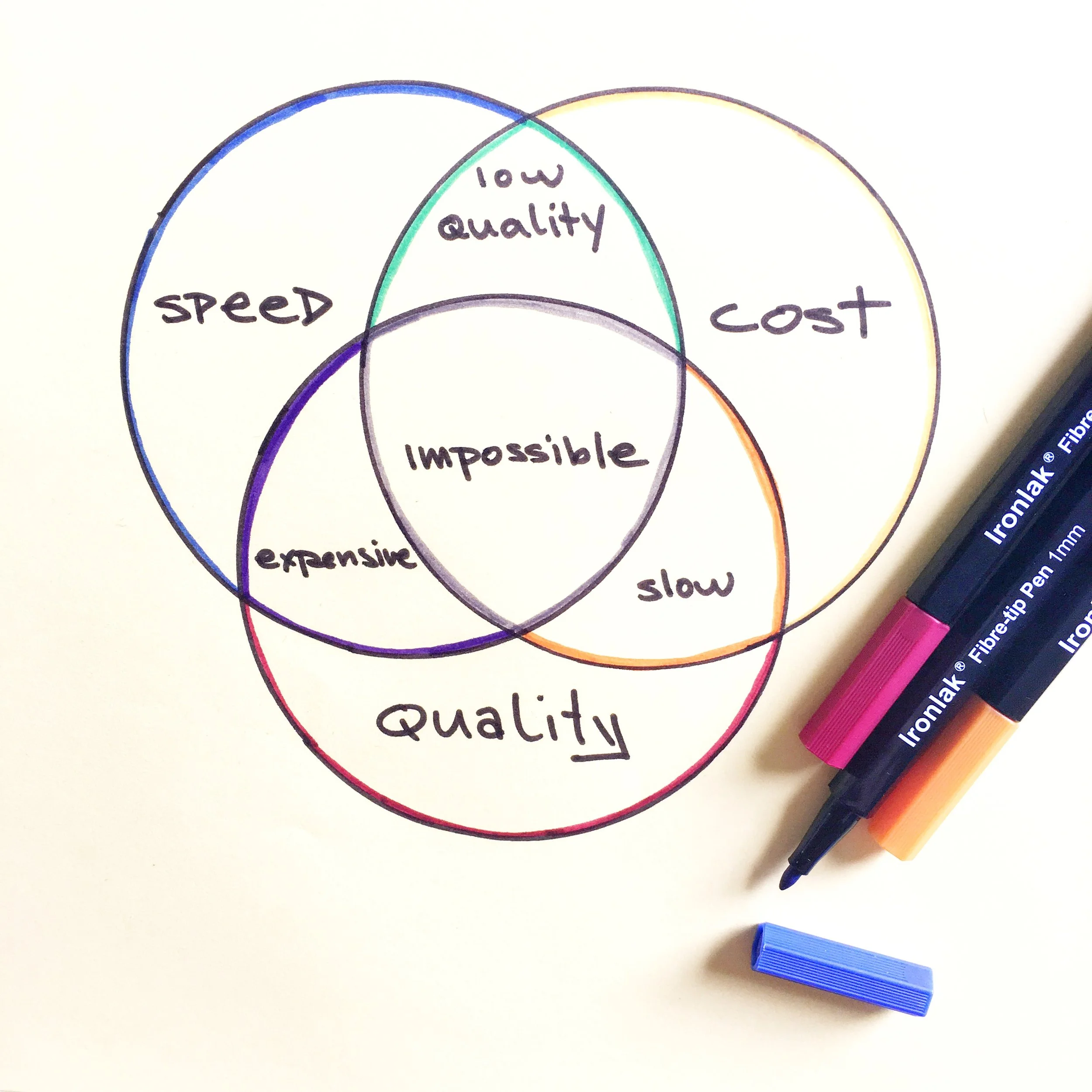It’s official! I’ve got a book coming out in October 31st— Kids Ain’t Cheap! How to plan financially for parenthood and your family’s future.
This has been a labour of love. Any free moment I had, I spent thinking, writing, and editing this book.
I wrote the book I wish existed when I was contemplating parenthood and when I was pregnant.
There’s so much you need to consider financially when transitioning into this new role of parenthood, but there’s very little resources out there.
This book has combined everything in one place to make it easier for parents to navigate their finances and the ins and outs of parental leave and the cost of early childhood care and education.
Massive thank you to Major Street Publishing for making my idea come to life. 📚
Shoutout to Evan Lucas for planting the seed of writing. 🌱
6 Tips on Project Management
A while back, I was invited to speak at Redbubble's Talk on Project Management. Although most of my experience is within the creative industry, these tips are helpful for any project manager.
1. Work smarter, not harder
Yes, we have all heard this. But, if you can’t manage your own time, how can you manage your teams? As a project manager, you have to think about how to keep moving your team forward. Therefore, productivity and organization are two things you must master in order to lead your team.
So, Let’s talk about the 80/20 rule. Pareto, an Italian economist found that the 80/20 distribution occurred frequently in economics. So, what does this mean for you? It means that 20% of your customers represent 80% of your sales. Or, more importantly that 20% of your time produces 80% of your results. If you think of it that way, only 20% of your work is really important. So, what are the 20% of activities that actually matter Identify the 20% and focus on that. This is a way to make you work efficiently.
Use tools: Trello. Google docs. Confluence. Basecamp. Asana. Evernote. Hipchat. Whatever you can get your hands on. Be organized, and keep it all in the same area. Allowing for your team to access it as well. This cuts down on double handling, and keeps everyone on the same page. Just make sure not to use more tools than are actually necessary.
Turn off your notifications. Everyone is already obsessed with checking Facebook, Instagram, and Twitter. Therefore, if you turn your notifications off, it helps eliminate email fixation, and allow for you to focus on the tasks you actually need to do. Ideally, checking your email twice a day allows for you to work smarter, not harder.
2. Lead the team
Project management is a full time job. So, in many cases, you shouldn’t actually be doing the grunt work. You need to think of yourself as a project leader, coach, and mentor. You need to understand the overall scope of the project and who the stakeholders are.
It’s important to communicate your vision. Assumptions can kill a team, so be open about the project and the expectations around it.
When working within your team it’s important to respect and value who you work with. They need to be treated with respect and they will respect you as well.
Don’t micro manage, but make sure you delegate accordingly and follow up with what still needs to be done.
Focus on the bigger picture. Don’t get side tracked by smaller tasks, you need to keep your eye on the ball, and make sure that it doesn’t get dropped.
3. Create a Critical Path to Success
Having a timeline and a critical path is necessary. But what is equally important is knowing what constitutes a successful project. When creating a timeline, often working backwards helps with time management. This allows you to create milestones, so that you and your team can celebrate achievements along the way. This makes the project less daunting, and it gives you short term goals to look forward to.
Also, measuring success is necessary in project management. What are the goals of the project? What are you trying to achieve?How do you know if you’re successful? Therefore, having outlined Key Performance Indicators (KPIs) and Return on Investment (ROI’s) prior to working on the project gives you objectives to achieve.
4. Assess Risk
Risk assessment is another item that is often overlooked when working on projects. It’s not just about getting the job done, instead it’s about identifying what could go wrong. And what you can do to avoid it.
Both time and money can be the biggest constraints when working on a project. Therefore it's important to prepare for both of them.
To asses for risks, you can over budget slightly, or, alternatively, create fake deadlines. This way, you have a bit of leeway when it comes to crunch time.
Quality, on the other hand is always important. Clients don’t remember how quickly or cheap something was, but they always remember how well it was done.
5. Evaluate
Retrospective. Post mortem. Review. Evaluation. Survey. Whatever you want to call it, once the project ends, it needs to get done.
After the conclusion of a project or event, list all the things you did well, things you should have done better, and action items.
The action items function as important learnings - where did you fail, and how can you do it better next time.
6. Try again. Fail again. Fail better.
Now that you learned from your last project, moving on to the next one will be a piece of cake. You will be far more successful, and of course your new project will be better as well. Much better.
But there will still be things you will learn. Things you didn't know. New things you will fail at. And that’s okay.
So, go out and fail better.


